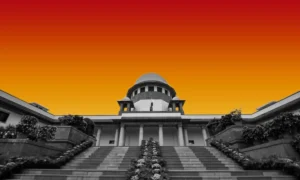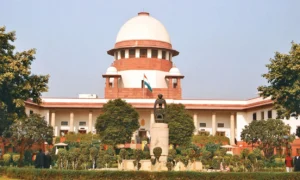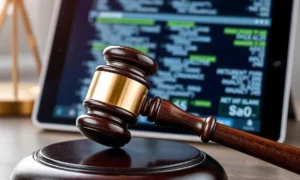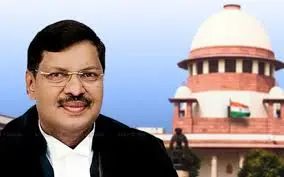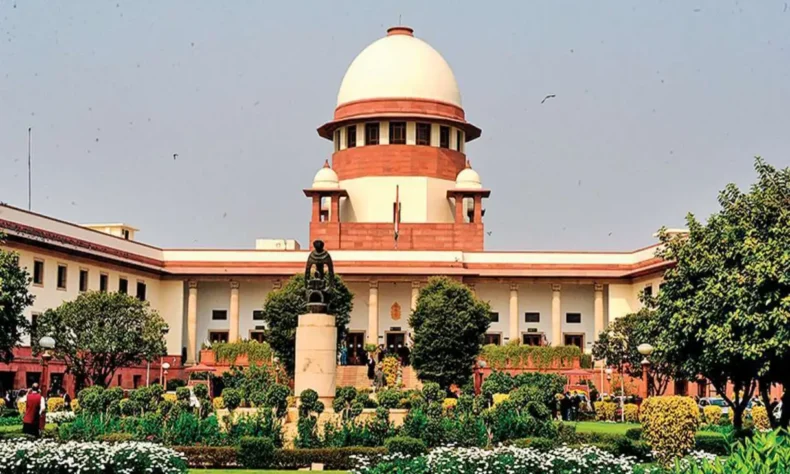
The Supreme Court on Tuesday revived the regulatory mechanism that permitted the Union government to grant ex post facto Environmental Clearances (ECs) for projects that had either commenced, expanded, or operated without securing prior approval as mandated under the Environmental Impact Assessment (EIA) Notification, 2006.
The Bench of Chief Justice of India BR Gavai, Justice K Vinod Chandran and Justice Ujjal Bhuyan, by a ratio of 2:1, recalled its May 2025 judgment that invalidated the 2017 Notification and the 2021 Office Memorandum (OM) issued by the Ministry of Environment, Forest and Climate Change (MoEFCC), both of which enabled post-facto regularisation of environmental violations.
The judges delivered three different verdicts in the case. While CJI Gavai and Justice Chandran allowed the review petitions, Justice Bhuyan authored a strong dissent, holding that the recall was legally untenable.
On May 16, the Bench of Justice AS Oka (since retired) and Justice Bhuyan ruled that permitting post-facto environmental clearances was contrary to the Court’s earlier binding precedents and violative of principles of environmental rule of law, the precautionary principle, and the polluter-pays doctrine.
The Bench reasoned that project proponents undertaking polluting activities without an EC did so with full knowledge of their statutory breach, rendering any retrospective regularisation constitutionally suspect.
It affirmed that the right to a clean and pollution-free environment came under the ambit of Article 21 and categorically restrained the Central government from issuing ex post facto (retrospective) ECs. The Apex Court, however, had granted a limited status quo protection to ex post facto ECs already issued till the date of the verdict.
The Confederation of Real Estate Developers’ Associations of India (CREDAI), along with other industrial entities and government bodies, challenged this verdict on the grounds that it created severe disruption across sectors, including mining, infrastructure, and real estate.
The petitioners contended that large-scale public projects worth thousands of crores would be rendered illegal, triggering mass demolitions and consequent environmental and economic harm.
Concurring with the arguments, CJI Gavai today said that public projects worth approximately Rs 20,000 crore would face demolition if retrospective ECs were not revived. Such demolition activity would itself exacerbate pollution, ironically defeating the purpose of environmental compliance, he noted.
The CJI further pointed out that the 2021 Office Memorandum was issued in compliance with binding directions of the National Green Tribunal (NGT) and, therefore, carried quasi-judicial sanctity. He ordered that projects stalled due to the earlier judgment may now resume.
Authoring a dissenting opinion, Justice Ujjal Bhuyan said that no grounds for review were made out under Order XLVII of the Civil Procedure Code or the Supreme Court’s inherent review jurisdiction.
He pointed out that on two previous occasions, the Apex Court had explicitly held that ex post facto environmental clearance was alien to India’s environmental jurisprudence. He further highlighted that the Union Government did not file a review petition, effectively accepting the May ruling. The Centre only filed an affidavit supporting CREDAI, which was insufficient for reopening a settled question of law, added Justice Bhuyan.
Justice Chandran held that the review was not only maintainable but also ‘imperative, expedient, and in the interests of regulatory certainty’. He emphasised the practical necessity for a harmonised approach balancing environmental compliance with infrastructural imperatives.
With the current judgment, the regulatory framework permitting retrospective ECs stands temporarily revived, pending further judicial scrutiny or legislative clarification.
Around 40 review and modification petitions were filed by industries, PSUs, and government departments, requesting the top court of the country to reconsider its May verdict, citing severe economic and administrative fallout.
During the previous hearings, Solicitor General Tushar Mehta, along with Senior Advocates Kapil Sibal and Mukul Rohatgi, had argued that a blanket prohibition on post-facto ECs could paralyse ongoing and completed projects, disrupt national infrastructure timelines, and undermine public investment.
📰 Crime Today News is proudly sponsored by DRYFRUIT & CO – A Brand by eFabby Global LLC
Design & Developed by Yes Mom Hosting

